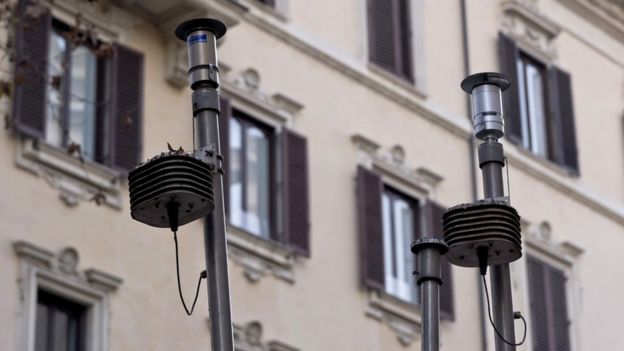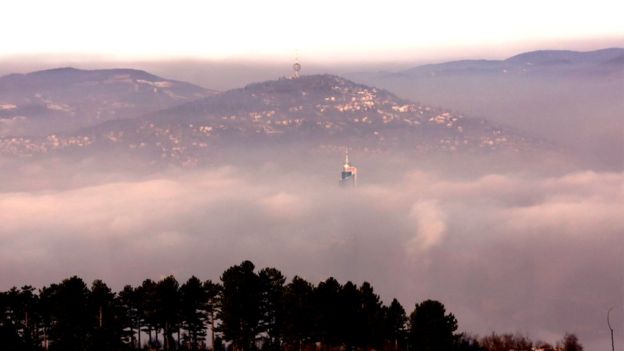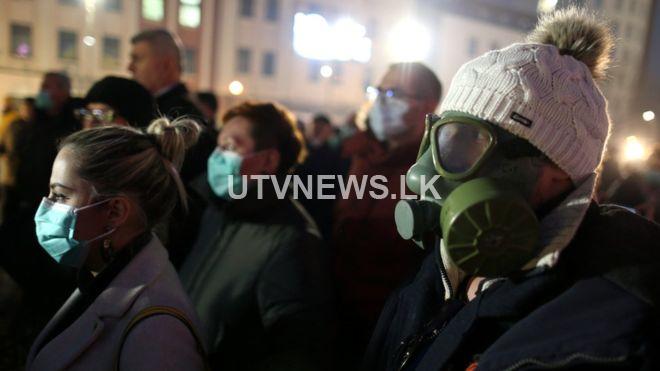(UTV|Bosnia-Herzegovina) – Cities across southern Europe are experiencing dangerously high levels of smog caused by a prolonged period of dry sunny weather and light winds.
Temporary bans on diesel vehicles have been ordered in major Italian cities, including the capital, Rome, in an effort to reduce the pollution.
In Bosnia-Herzegovina, protesters have taken to the streets in gas masks demanding action from the government.
Environmentalists have described the situation as a smog emergency.
In Rome, diesel cars, vans and motorbikes have been banned during peak times, while other polluting vehicles have been banned altogether.
The restrictions, which are set to remain in place over the next three days, are expected to affect about one million vehicles.
At least nine of the 13 areas in Rome that monitor particulate matter – a fine dust known as PM10 – have recorded levels this week in excess of the legal limit, Italy’s Il Messaggero reported.

Environmentalist groups have complained that Rome city council has been too slow to act on the reported results.
Further north, where air pollution is typically worse, Milan, Turin and Bologna are among other cities to take similar action after recording a sharp rise in particulate matter.
Italy’s permitted limit for PM10 particles is 50 micrograms per cubic metre, but in recent days that limit has been exceeded – especially in the north, where monitoring stations near Bologna show levels as high as 125 micrograms per cubic metre.
A high concentration of PM10 and PM2.5 particles can pose significant health risks because they are small enough to penetrate deep into the lungs. The most common source is vehicle engine emissions.
Meanwhile, protests have been taking place in cities and towns across Bosnia-Herzegovina.
On Wednesday, hundreds of people wearing respirators and face-masks gathered in the northern city of Tuzla to demand urgent action to improve air quality.
In the capital, Sarajevo, government officials have been holding emergency meetings to discuss measures to curb the pollution.
An “episode of alarm” was declared at the weekend and a ban was put in place to reduce the number of vehicles on the roads.

Local residents have also been advised to head for the mountains, where the air is cleaner, with cheap tickets made available for cable cars.
Further meetings are due to be held on Friday.
Sarajevo is among the cities to record some of the worst levels of air pollution in recent days, along with the capital cities of neighbouring Serbia, Kosovo and Macedonia.
In Serbia, where the government held an emergency meeting on Wednesday, residents were warned to remain indoors and avoid physical activity – especially those with health conditions such as asthma.
Serbia’s Prime Minister Ana Brnabic blamed household heating and older diesel cars for the high pollution levels.
Ms Brnabic said measures to tackle the issue would include more and stricter checks on vehicle emissions, improving and replacing filters on power stations and in the longer term, a programme of tree-planting. (BBC)

